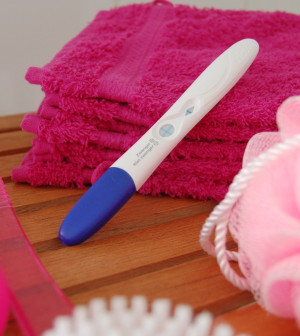- Could Your Grocery Store Meat Be Causing Recurring UTIs?
- Are You Making This Expensive Thermostat Error This Winter?
- Recognizing the Signs of Hypothyroidism
- 10 Strategies to Overcome Insomnia
- Could Artificial Sweeteners Be Aging the Brain Faster?
- Techniques for Soothing Your Nervous System
- Does the Water in Your House Smell Funny? Here’s Why
- Can a Daily Dose of Apple Cider Vinegar Actually Aid Weight Loss?
- 6 Health Beverages That Can Actually Spike Your Blood Sugar
- Treatment Options for Social Anxiety Disorder
Full-Time Job May Disrupt Breast-Feeding Plans


New mothers who return to work full-time are less likely to stick with their breast-feeding goals than those who go back to work part-time, a new study finds.
“Support for a mother’s delayed return to paid employment, or return at part-time hours, may help more mothers achieve their breast-feeding intentions,” the researchers wrote. “This may increase breast-feeding rates and have important public health implications for U.S. mothers and infants.”
Breast-feeding is known to provide health benefits for infants and their mothers.
The researchers analyzed data from nearly 1,200 new mothers in the United States and found that nearly 29 percent of those who intended to breast-feed for three months did not meet that objective.
Compared to mothers who stayed home for at least three months after giving birth, mothers who returned to work full-time within six weeks were 2.25 times less likely to meet their three-month breast-feeding goal. Mothers who returned to work full-time between six weeks and three months after giving birth were 1.82 times less likely to achieve that goal, the study found.
There was no link between returning to work part-time and failure to meet the three-month breast-feeding goal, according to the study published July 17 in the Journal of Human Lactation.
More information
The U.S. National Library of Medicine has more about breast-feeding.
Source: HealthDay
Copyright © 2026 HealthDay. All rights reserved.










